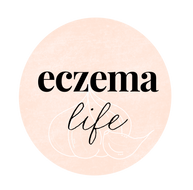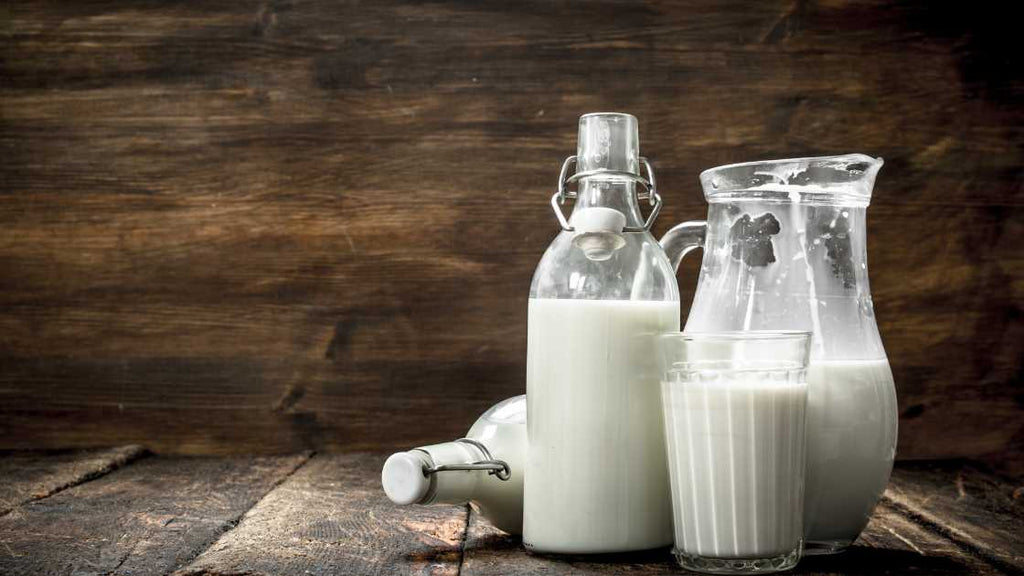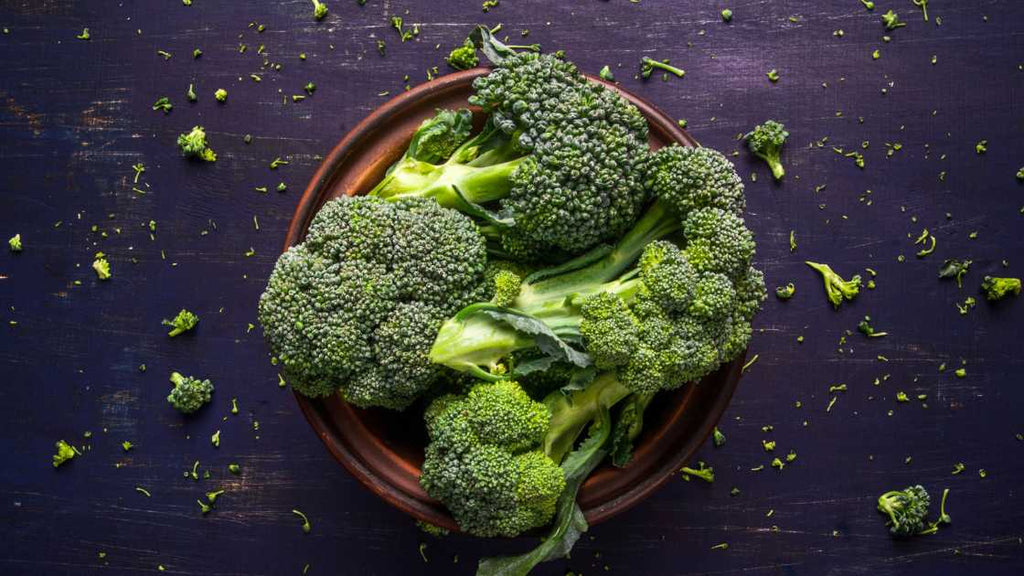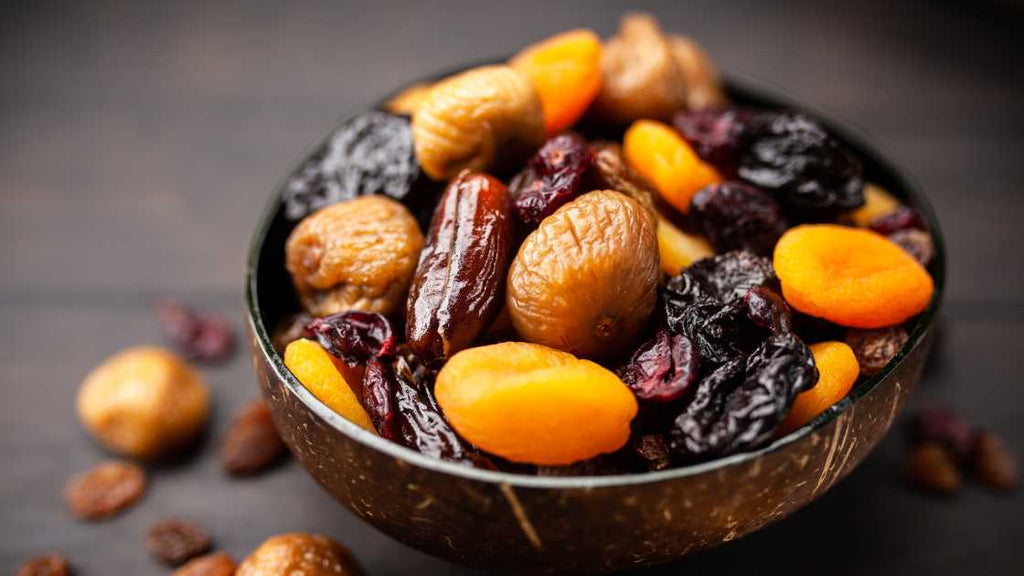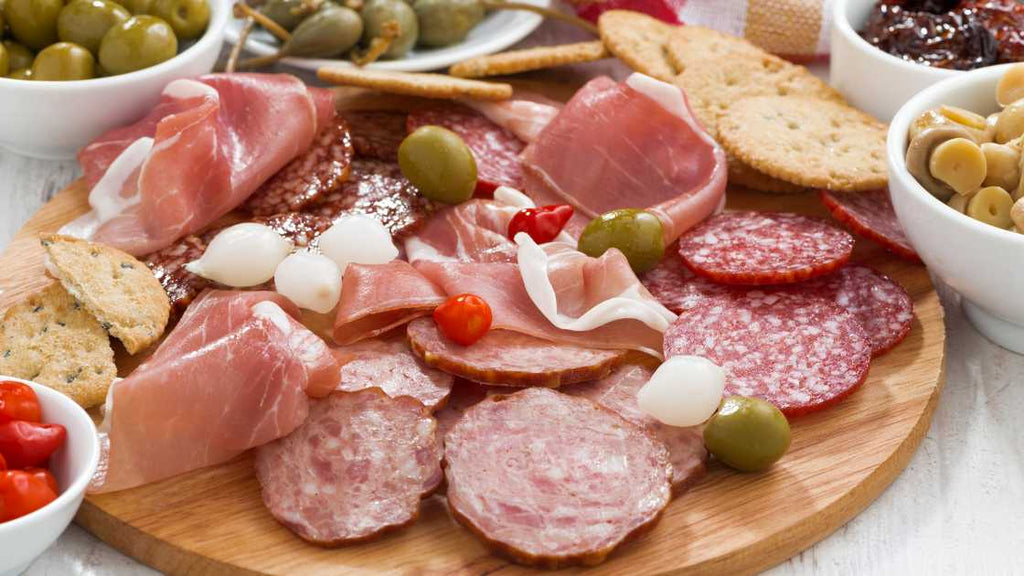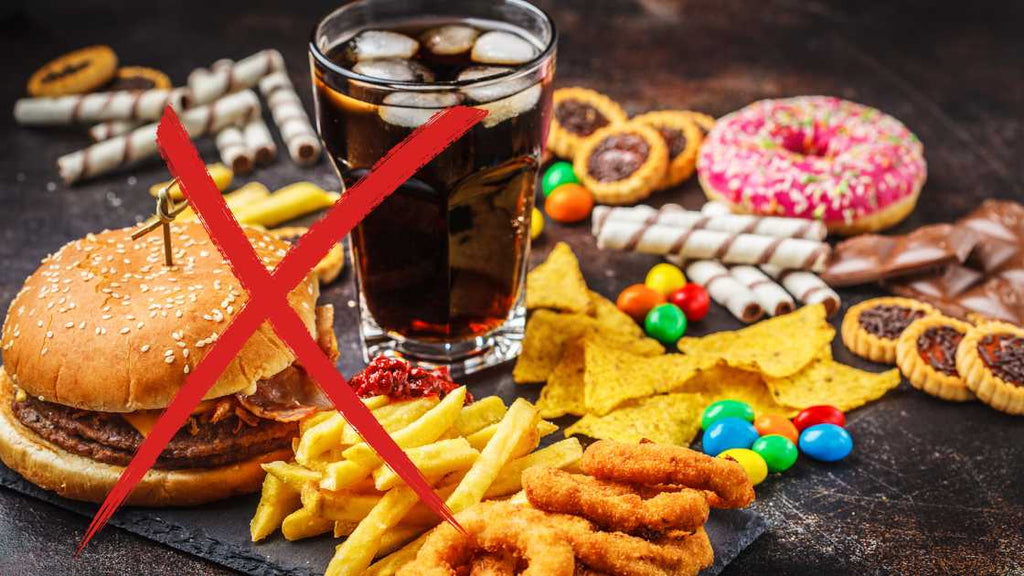Itchy Dozen Worst Foods for Eczema

Love food but hate eczema flare-ups? Whether it's you or your child dealing with the itch, some foods could be making things worse. But don’t panic—you don’t have to give up everything you love.
As a health practitioner actively researching the link between diet and eczema, I’m here to help you uncover the top 12 foods that might be making your eczema worse. Plus, what you can do to get relief from that itch. Let’s dig in (but maybe not literally)! 
Blog by nutritionist Karen Fischer, author of The Eczema Detox and The Eczema Diet
The video: Nutritionist Karen Fischer spoke about the Itchy Dozen Worst Foods for Eczema on prime time Australian news. AM Activated Multi is the supplement Georgie added to her smoothie and The Eczema Diet is the book featured in the news video.
The Itchy Dozen
Did you know eczema can make you extra sensitive to certain foods? In fact, over 50% of people with eczema have food hypersensitivities—but most have no idea their diet is making things worse (according to this systematic review).
You’ve probably heard a lot about what foods are "good" for eczema, but guess what? Most of it is wrong. Take avocado, for example—TikTokers say it’s great for eczema, but research shows it can actually make eczema itchier.
After looking at the research I've come to believe:
"One person’s superfood is another person’s sleepless night of itching"***
If you have eczema, the wrong foods can turn your skin into an itchy nightmare. So let’s bust some myths and dive into the Itchy Dozen—12 foods that might be making your eczema worse.
1. Dairy products
Dairy & Eczema: A Nightmare for Some
A recent systematic review by Christensen (2023) found that 36% of people with eczema react poorly to dairy—including cow’s milk, yogurt, and cheese. That’s 81 million people worldwide dealing with dairy-induced itchiness! In fact, dairy is the second most common eczema trigger (stay tuned for #1).
If you’re dairy-sensitive, it could be making your eczema a nightmare to manage. But how do you know for sure?
Do You Need an Allergy Test?
Maybe, maybe not. Allergy tests won't detect dairy sensitivity—most doctors don’t realise this because nutrition isn’t their field. Tests like skin prick tests are notoriously inaccurate and don’t identify food intolerances, which can be just as triggering for eczema.
The best (and free) test? Try eliminating dairy from your diet for 1-2 weeks, then reintroduce it and watch for skin reactions. If you have severe food reactions, consult with an allergy specialist before testing as they can guide you through this process.
Best Dairy-Free Swaps
Ditch the itch with calcium-fortified oat, rice, or soy milk (if tolerated), because you need calcium in your diet for bone and skin health. But avoid coconut and almond milk—they’re eczema’s worst enemies because they are rich sources of itch-promoting histamine and salicylates.
2. Alcohol
Grapes & Alcohol: A Triple Threat for Eczema
Love wine, champagne or a handful of raisins? If so, this is bad news—if you have eczema or asthma, alcohol might be making your symptoms much worse.
Plus, grapes (including sultanas, raisins, and juice) are a “triple threat” because they’re packed with salicylates, amines and MSG—three chemicals known to worsen eczema (Loblay and Swain 2006).
- Salicylates are natural pesticides found in many fruits, aspirin, perfumes, and even baby teething gels (so never use Bonjela on infants!).
- Wine and champagne are loaded with histamine, which can trigger itching, hives, asthma and facial flushing.
- Research shows that about 30% of people with eczema (atopic dermatitis) have histamine intolerance, meaning 67.5 million people worldwide should steer clear of alcohol, fermented foods, avocado, almonds and coconut.
If you’ve been struggling with eczema flare-ups, cutting out grapes and alcohol might be the game-changer that clears up your skin.
What about social events?
If you have a special occasion and want to indulge, opt for purer forms of alcohol such as gin and soda water or whiskey and water—and limit your intake to one or two standard glasses.
3. Chocolate
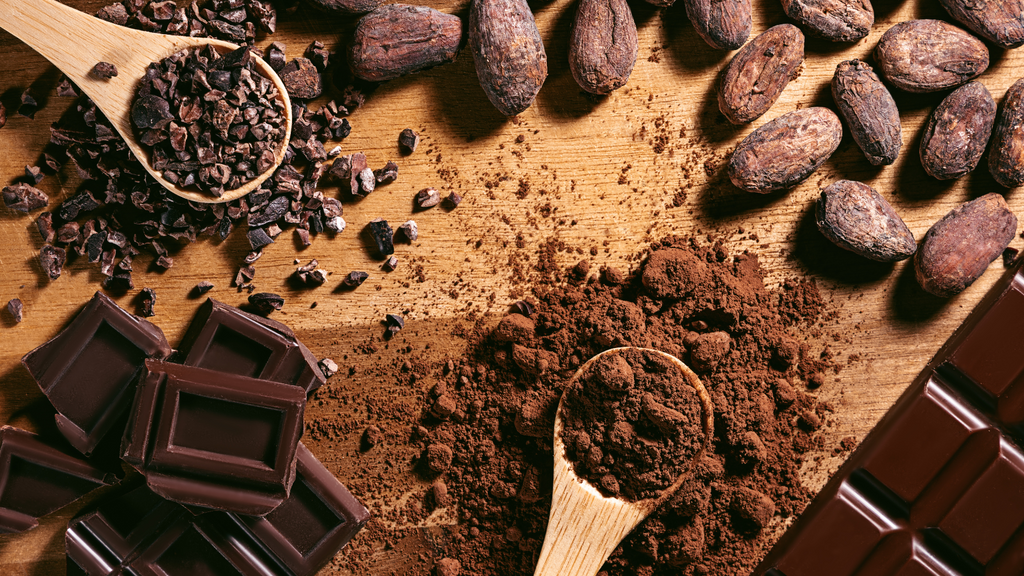
Could Chocolate Be Your Skin’s Worst Enemy?
I know, I know—chocolate is life. But if you have eczema, it might also be the reason your skin won’t stop itching!
Chocolate is packed with theobromine and salicylates, two common eczema triggers. Japanese researchers found that 35% of kids with eczema had flare-ups after eating chocolate (Uenishi, 2008).
Another study found that nearly half of children with eczema saw their symptoms worsen after indulging (Uenishi, 2004). But here’s the kicker—when they gave up chocolate for a few months, their eczema got significantly better.
With 78 million people worldwide potentially affected, it’s worth experimenting. If your skin has been acting up, maybe it’s time to pause the chocolate and see what happens.
What about sweet cravings—How do I get my fix?
Opt for carob, lemonade ice blocks/ice lollies (no colouring), white marshmallows or pure toffee.
4. Kiwi fruit
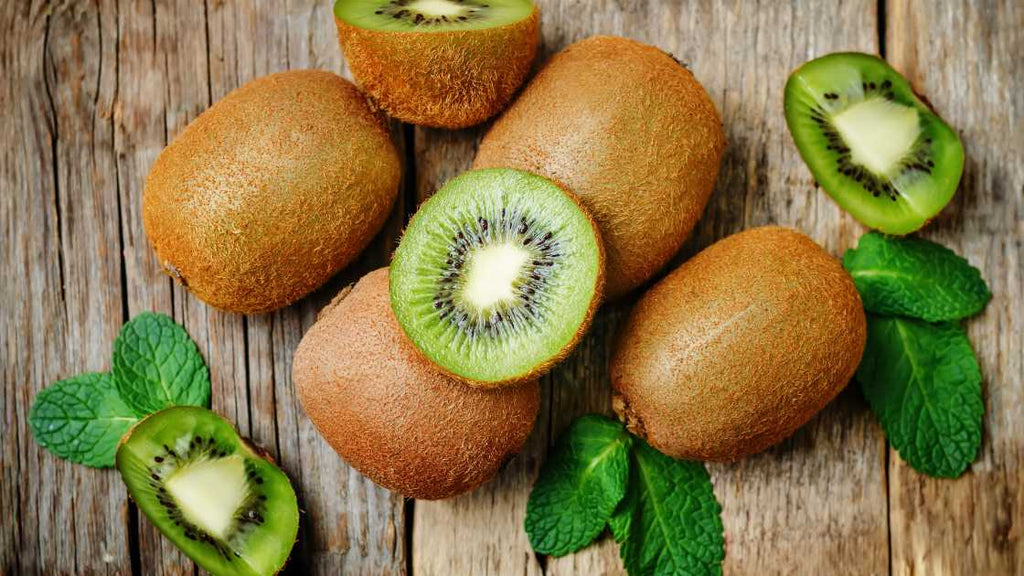
Kiwi: The Itchy Little Fruit You Didn’t See Coming
Kiwi might be packed with vitamin C, but for eczema-prone skin, it’s trouble! This acidic fruit is loaded with salicylates and amines, two chemicals that can trigger major itchiness.
And here’s the tricky part—food intolerance reactions can take up to two days to appear! That means you could eat kiwi today and not realise it’s wreaking havoc on your skin until later. No wonder food triggers are so confusing!
Fruit fix: What can I eat instead?
Go for peeled pears and up to 10 blueberries per day—they’re low in salicylates and much gentler on your skin.
5. Soy sauce
Sneaky Soy Sauce: I Love it BUT ...
I like to be relaxed about food, and I eat whatever I like when eating out, but I'm not keen on eating genetically modified (GMO) soy-beans, which are often used to make this oh-so yummy sauce. Organic soy sauce is a GMO-free option but it is nearly impossible to find. So I often just eat it anyway.
But when food makes you crazy itchy, like you're sleeping on an ant's nest, I take notice and change my diet to get fast relief.
Soy sauce is loaded with potential itchies including MSG and amines, like histamine, which can worsen the itch of eczema. A Japanese study found that people with hard-to-treat eczema often react to soy sauce and other soy-based products. Taking soy out of their diet gave them relief from the itch.
Better Flavour Boosters
Sauces are some of the biggest culprits behind eczema flare-ups. Instead of reaching for soy sauce, try pure salt (in moderation), garlic, ginger, basil or turmeric to add flavour without the itch.
6. Tomato
Tomato and tomato-based products, including tomato ketchup and spaghetti Bolognese, are another triple threat as they are very rich sources of dietary salicylates, amines and natural MSG: which can trigger eczema.
Tomatoes: A Triple Threat for Eczema
Love ketchup or a big bowl of spaghetti Bolognese? Your skin might not! Tomatoes and tomato-based products are packed with salicylates, amines and natural MSG—a powerful trio that can trigger eczema flare-ups. If your skin (or your child's skin) gets itchy after a tomato-heavy meal, this could be why.
7. Avocado
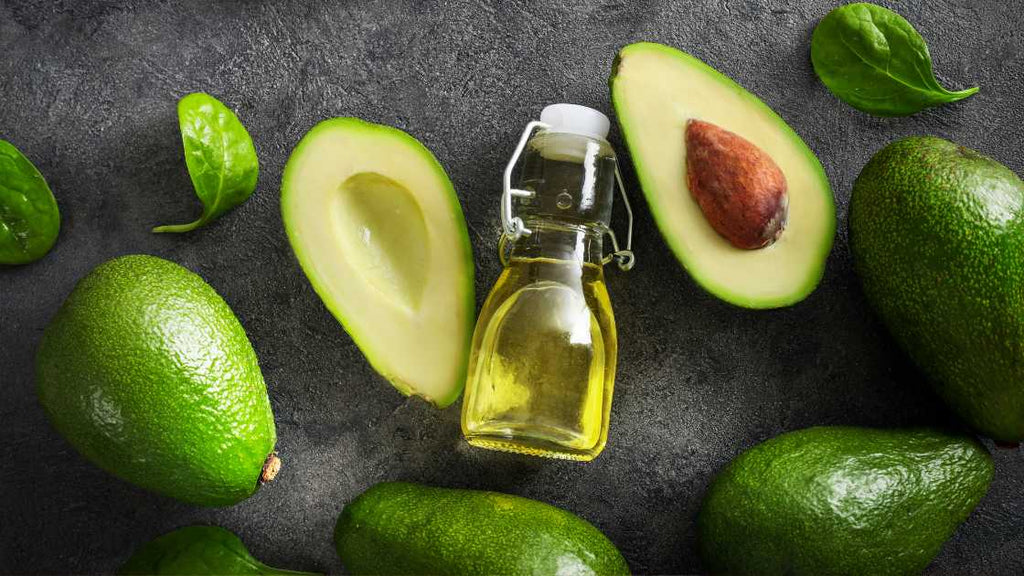
Avocado—Not So Skin-Friendly for Eczema
Avocado may be a nutritional powerhouse, but for eczema sufferers, it can be a recipe for itchy, inflamed skin. Packed with amines and salicylates, this fruit can be a major trigger for flare-ups.
You're not alone—hundreds of people with eczema have told us that avocado makes their symptoms much worse. If your skin isn’t happy, it might be time to take a break from avo toast.
8. Broccoli
Greens & Eczema—A Hidden Connection
What if I told you that broccoli, spinach, kale, and silverbeet—yes, the ones loaded with nutrients—might be making your eczema worse?
So that green smoothie could be keeping you up at night itching!

These greens are a triple threat for eczema-prone skin, packed with salicylates, amines and MSG—all known to trigger itching in extra-sensitive people.
Wait... Are These Foods Bad Now?
Not at all! These greens are absolutely nutritious, but if you're sensitive to salicylates, histamine or MSG they could be worsening your eczema. The only way to know? Avoid them for a couple of weeks, then reintroduce them and see how your skin reacts.
Eczema-Friendly Greens
Swap them for lower-salicylate options like iceberg lettuce, leeks, endive, choy sum, and celery. Once your eczema clears up, you can slowly reintroduce other greens—just like I did (I still can't go overboard on broccoli... but a little? No problem!).
9. Dried fruits
Love Dried Fruit? Your Skin Might Not!
Dried fruit is sweet, chewy, and… a potential eczema nightmare. It’s loaded with salicylates, amines, MSG and sulphites, all of which can trigger major itchiness.
Apricots, dates, prunes and sultanas are extra flavourful thanks to natural MSG, but that same deliciousness could be making your skin miserable. If your eczema flares up after snacking, dried fruit might be the sneaky culprit.
Instead, favour a SMALL serve of fresh fruit, like peeled pears and blueberries (avoid kiwi fruit, oranges and grapes—there are hundreds of others to choose from).
10. Deli meats
Swap Deli Meats for Skin-Friendly Protein
Sausages, ham and bacon may be tasty, but they’re also packed with nitrates, flavour enhancers, salicylates and saturated fats, all of which can aggravate eczema. Research shows that 43% of eczema sufferers react to nitrates (Loblay and Swain 2006), so if you’re constantly itching, this could be a factor!
Better Protein Choices
For eczema-friendly options, go for skinless chicken (the skin contains amines), lean lamb and beef. Fresh fish is another great choice if you tolerate seafood.
Plant-based? Load up on black beans, lentils, mung bean sprouts and chickpeas—nutritious, filling and skin-friendly!
11. Eggs
Could Eggs Be Fuelling Your Eczema?
A large systematic review found that 37% of eczema sufferers react to eggs—that’s 83.2 million people worldwide! (Source). The study used oral challenge testing, the most reliable way to diagnose food hypersensitivity, making this a significant finding.
What About Raw Eggs?
Eating raw eggs frequently can cause “egg white injury” (yes, that’s the actual medical term). This can lead to biotin deficiency, which may trigger eczema or dermatitis. While eggs aren’t a problem for everyone, this could be an important factor to consider if your itchin' and bitchin' get out of control.
Egg replacers
For egg replacer in recipes use tapioca starch/flour or arrowroot flour or buy egg replacer in store. Scrambled tofu, perhaps, if you're not sensitive to soy.
12. Junk food
Junk Food & Eczema—What the Science Says
Craving fast food? If your kiddo has eczema, think twice before hitting the drive-thru.
A study from Auckland University analysed data from almost two million children and found that kids who eat fast food three or more times a week are significantly more likely to develop severe eczema—and even asthma (source).
A Simple Swap for Healthier Skin
The best way to help? Cook at home using eczema-friendly ingredients. It’s easier than you think, and our Eczema Diet community is here to help at eczemadiet.com.
Helping Eczema from the Inside Out
Eczema isn’t just about what you put on your skin—it’s also about what you put in your body. By making the right dietary choices, you can help calm inflammation and reduce flare-ups naturally.
One of the most effective ways to do this is through a low-chemical diet like The Eczema Detox. This nutrient-rich, anti-inflammatory plan is free from glutamates/MSG, preservatives, additives and dairy, while also offering plenty of gluten-free and vegan options.
Not only does The Eczema Detox help you eat skin-friendly foods, but it also guides you through identifying food and chemical intolerances using the FID Program—so you’ll know exactly what to avoid and what to enjoy for clearer skin.
Ready to take control of your eczema from the inside out? Check out The Eczema Detox and start your journey toward healthier, happier skin today!
Not Ready to Change Your Diet? No Problem!
What about the best skincare for eczema?
If adjusting your diet feels like a big step, don’t worry—you can still soothe and improve your skin with the right skincare. One of my favourites that I recommend to my eczema patients is Wonder Zinc, Healthy Glow Barrier Cream, because it’s packed with zinc, elderberry and organic seaweed to help reduce the risk of skin infections and soothe eczema flare-ups. Or try Eczema Friend which instantly calms the itch.
A Little Thank You! 🎉
You made it to the end—so here’s a special discount just for you. Use this exclusive discount code at SkinFriend.com to stock up on my favourite eczema-friendly products and get more skin-saving tips.


About the Author
Nutritionist Karen Fischer is a former eczema sufferer who is passionate about helping people with eczema. Over the past 20+ years, she has helped thousands of individuals with eczema through consultations, skincare and her books The Eczema Diet, The Eczema Detox and The Healthy Skin Kitchen.
Read more about the author, Karen Fischer, here
This article was updated 17th of March 2025.
Enjoy ad-free articles at Eczema Life... I mention my products so you have new options to help you get relief.
References
Fischer, K., 2013, The Eczema Diet, First Edition, Exisle Publishing, Wollombi, Australia.
Rudzeviciene, O., et al., 2004, ‘Lactose malabsorption in young Lithuanian children with atopic dermatitis’, Acta Paediatrica, vol. 93, no. 4, pp. 482–6.
Loblay, R.H. and Swain, A.R., 2006, ‘Food Intolerance’, Recent Advances in Clinical Nutrition, retrieved 1 April 2011 from Australian Government website www.nsw.gov.au.
Christensen MO, Barakji YA, Loft N, Khatib CM, Egeberg A, Thomsen SF, Silverberg JI, Flohr C, Maul JT, Schmid-Grendelmeier P, Halling AS, Vittrup I, Thyssen JP. Prevalence of and association between atopic dermatitis and food sensitivity, food allergy and challenge-proven food allergy: A systematic review and meta-analysis. J Eur Acad Dermatol Venereol. 2023 May;37(5):984-1003. doi: 10.1111/jdv.18919. Epub 2023 Feb 8.
Foong RX, Dantzer JA, Wood RA, Santos AF. Improving Diagnostic Accuracy in Food Allergy. J Allergy Clin Immunol Pract. 2021 Jan;9(1):71-80. doi: 10.1016/j.jaip.2020.09.037.
Lee SE, Lee SH. Skin Barrier and Calcium. Ann Dermatol. 2018 Jun;30(3):265-275. doi: 10.5021/ad.2018.30.3.265. Epub 2018 Apr 23.
Maintz L, Novak N. Histamine and histamine intolerance. Am J Clin Nutr. 2007 May;85(5):1185-96. doi: 10.1093/ajcn/85.5.1185.
Wüthrich B. Allergic and intolerance reactions to wine. Allergol Select. 2018 Sep 1;2(1):80-88. doi: 10.5414/ALX01420E.
Chung BY, Cho SI, Ahn IS, Lee HB, Kim HO, Park CW, Lee CH. Treatment of Atopic Dermatitis with a Low-histamine Diet. Ann Dermatol. 2011 Sep;23 Suppl 1(Suppl 1):S91-5. doi: 10.5021/ad.2011.23.S1.S91. Epub 2011 Sep 30.
Uenishi, T., et.al, 2003, ‘Role of foods in irregular aggravation of atopic dermatitis’, Journal of Dermatology, vol. 30, pp. 91–7.
Nakanishi, Y., et al, 2008, ‘Monosodium glutamate (MSG): a villain and promoter of liver in ammation and dysplasia’, Journal of Autoimmunity, vol. 30, no. 1–2, pp. 42–50.
Uenishi, T., H. Sugiura, and M. Uehara, Involvement of food in irregular exacerbations of childhood atopic dermatitis. Skin Science, 2004. 3: p. 93-96.
Article may not be reproduced without written consent from the author.
